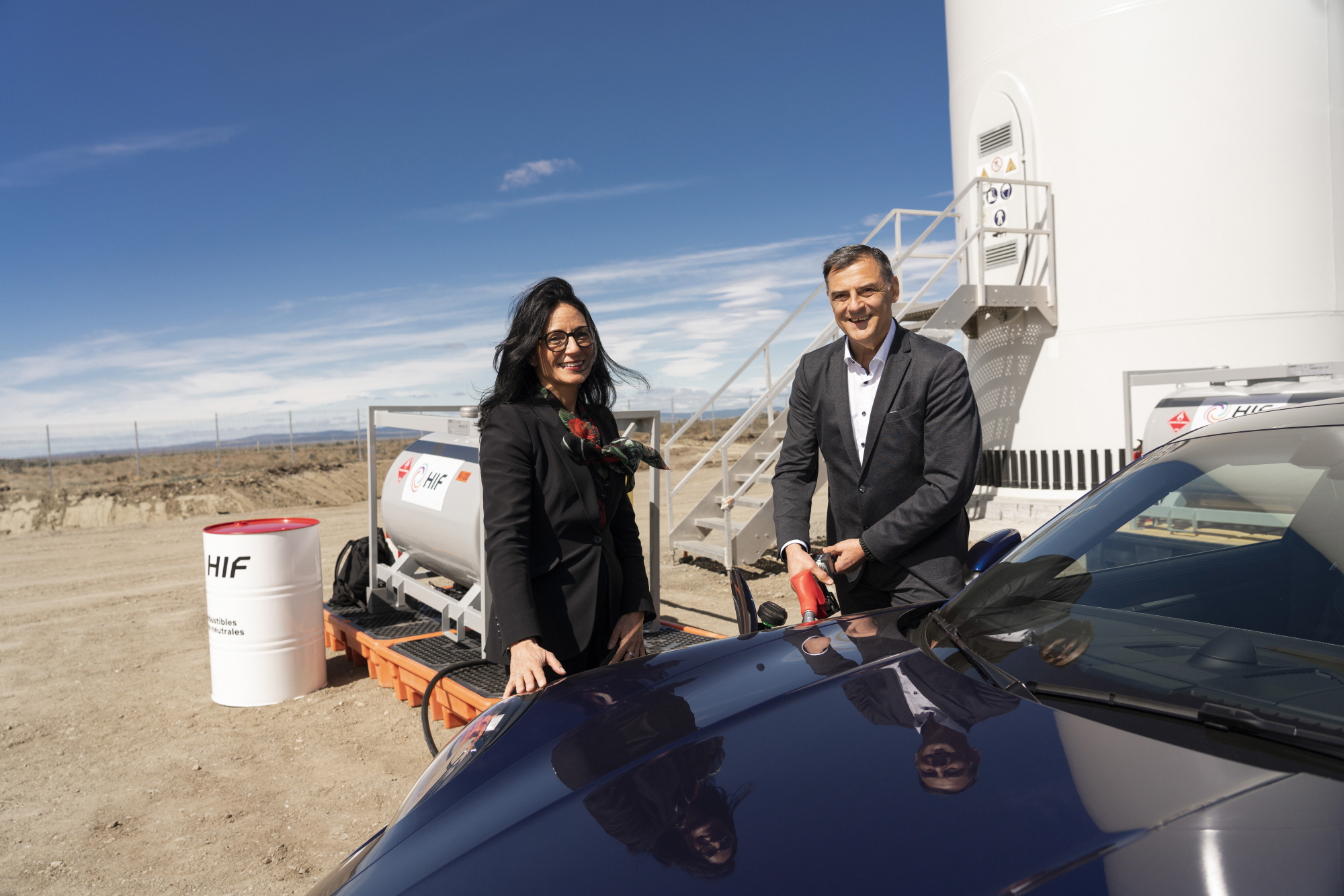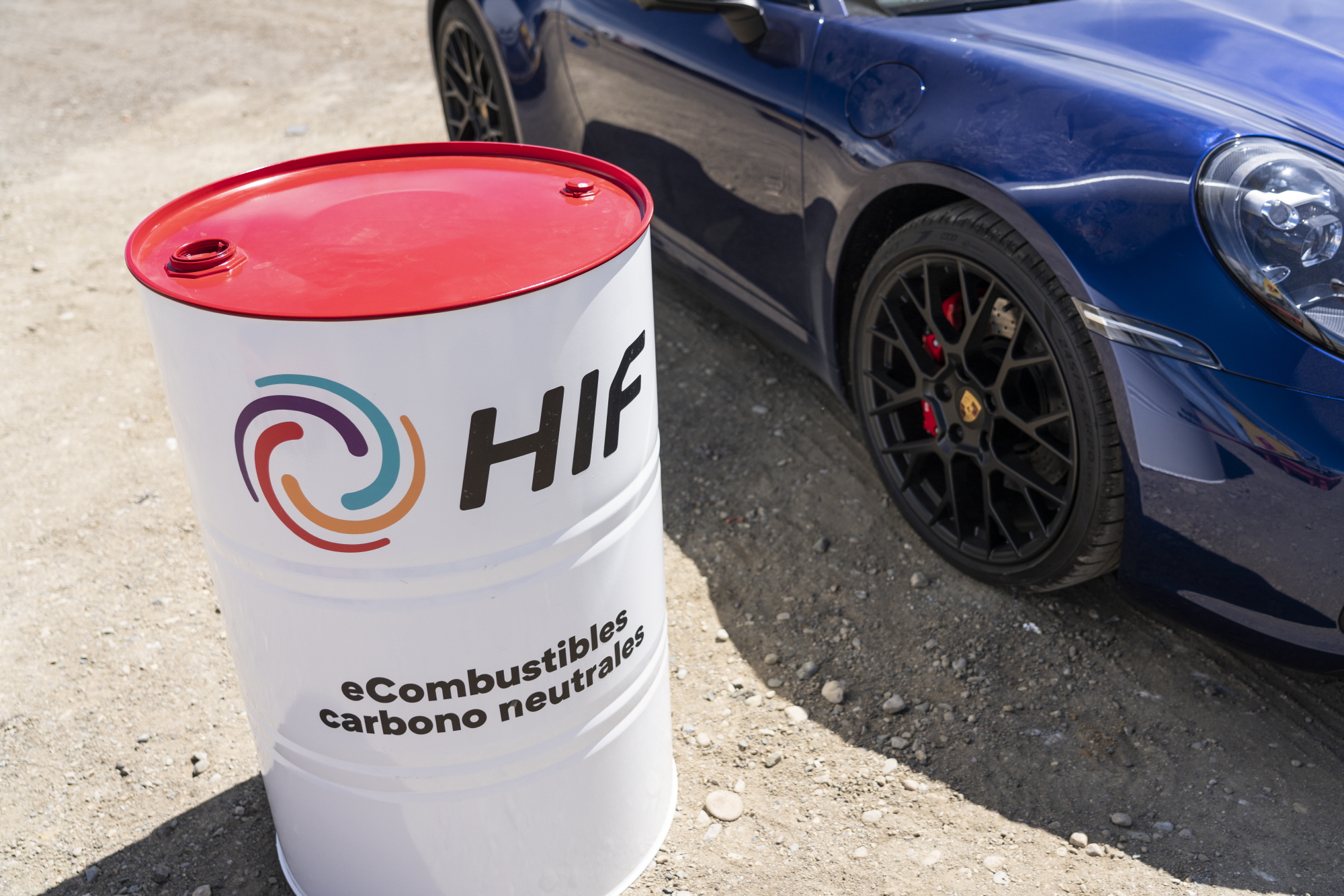
Porsche has begun the production of synthetic fuels in collaboration with the Chilean operator HIF (Highly Innovative Fuels) and international partners.
On the 20th (local time), the Chilean Minister of Energy, Diego Pardos, attended the official opening of the “Haru Oni” pilot plant located in Punta Arenas. Porsche AG board members Barbara Frankel and Michael Steiner participated in a ceremony refueling the first synthesized fuel into a Porsche 911. Produced using wind energy from water and carbon dioxide, the e-fuel aims to enable carbon neutrality for gasoline engines.
Barbara Frankel, Porsche’s procurement board member, stated, “Porsche pursues complementary goals in two directions: e-mobility and e-fuels.” She further emphasized, “The use of e-fuels should not only focus on CO2 reduction but also expand industrial production of synthetic fuels globally across all transportation sectors. Porsche is leading the field of synthetic fuel development with this e-fuel pilot plant.”
Michael Steiner, a board member of R&D at Porsche AG, noted, “The potential of e-fuels is significant.” He pointed out that there are currently over 1.3 billion internal combustion engine vehicles in the world, most of which will still be in operation for decades to come. “E-fuels provide a carbon-neutral alternative for existing car owners,” he emphasized. He also added, “Porsche has extensive expertise in fuel production as a manufacturer of high-performance efficient engines.”
Porsche plans to produce approximately 130,000 liters of e-fuel annually during the pilot phase and will be the first to use Chilean fuel in lighthouse projects like the Porsche Mobil 1 Supercup and the Porsche Experience Center. After the pilot phase, it expects to scale up production to 55 million liters annually by 2025 and further to 550 million liters within about two years.
The southern region of Chile offers ideal climatic conditions for e-fuel production. Strong winds blowing for about 270 days a year enable wind turbines to operate at maximum capacity. Additionally, Punta Arenas, located near the Magellan Strait, allows for the shipment of synthetic e-fuel worldwide from the Cabo Negro port while utilizing existing infrastructure for distribution.
Porsche is committed to achieving carbon neutrality across its entire value chain by 2030, which includes carbon-neutral phases for future pure electric models. The production of synthetic fuels complements the electrification efforts and is part of Porsche’s sustainability strategy, with over $100 million already invested in the development and production of e-fuels. In April, Porsche invested $75 million into HIF Global LLC, which plans, constructs, and operates e-fuel plants in Chile, the USA, and Australia.

Lee Sang-jin daedusj@autodiary.kr

